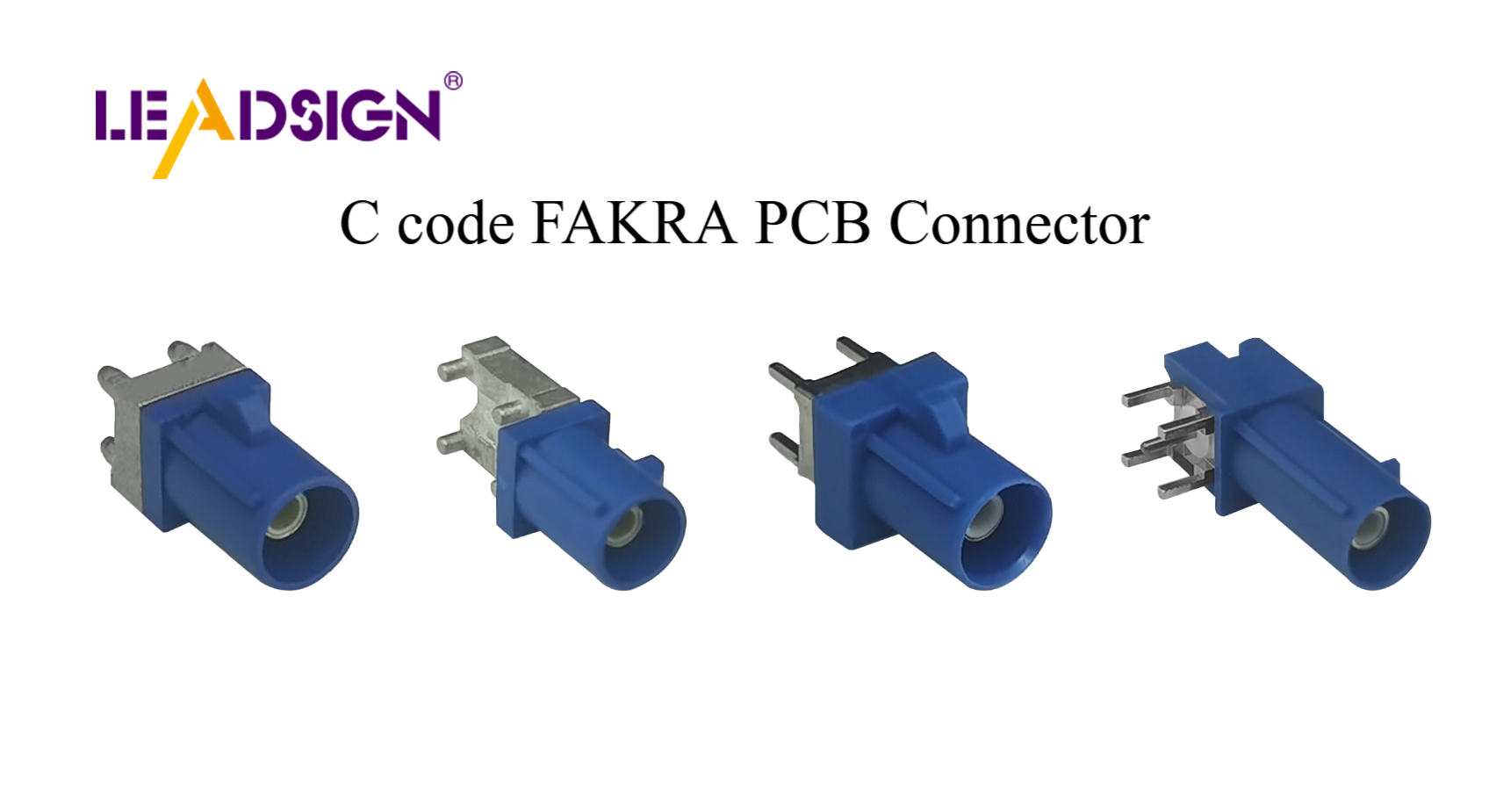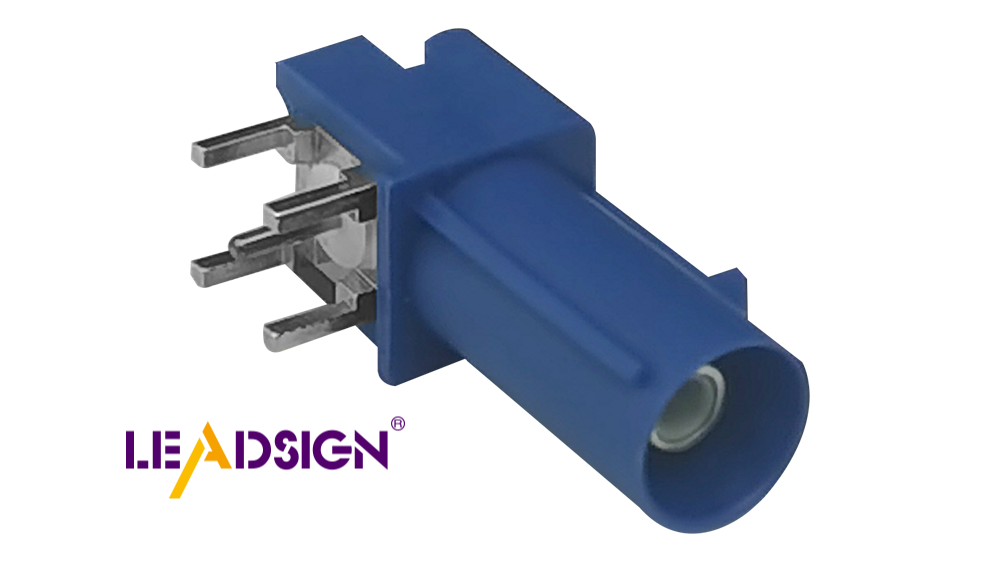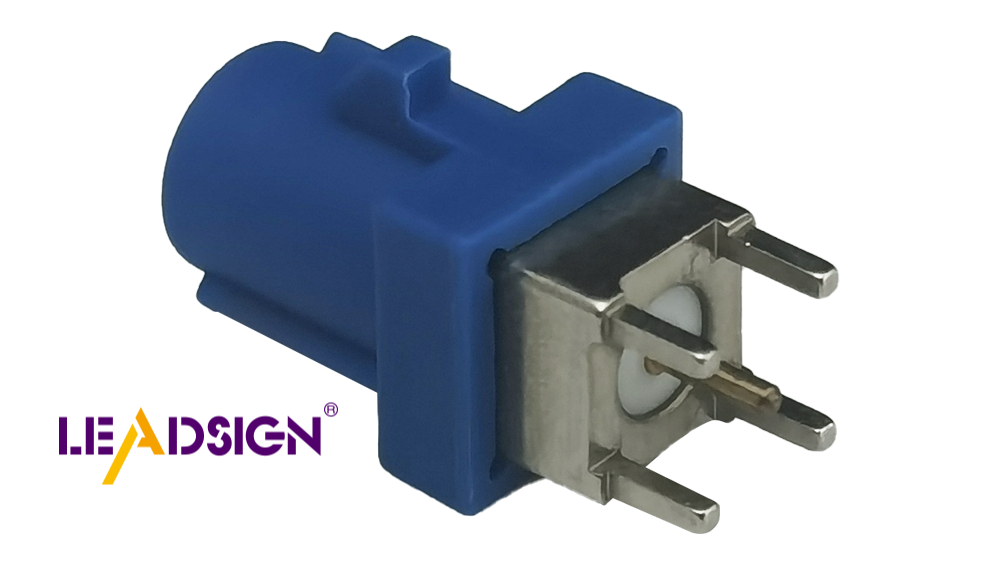How to Pick the Right Automotive Wire Connectors Types

Vehicle connectors are key to your car's electrical system. They help send power and data between parts like lights and safety systems. Picking the right vehicle connector is important for safety and reliability. A bad connection can cause big problems, like broken brakes or sensors. Good-quality vehicle connectors improve how your car works and last longer. To choose the best one, think about strength, fit, and weather resistance. The right vehicle connector keeps your car working well and makes you feel secure.
Key Takeaways
Choosing the right automotive wire connectors is crucial for safety and reliability in your vehicle's electrical system.
Understand your car's power needs by checking current, voltage, and frequency requirements to select compatible connectors.
Consider environmental factors like temperature, moisture, and dust when selecting connectors to ensure durability and performance.
Look for connectors with appropriate IP ratings to protect against dust and water, especially in harsh conditions.
Select connectors designed for vibration resistance to prevent failures caused by shaking and bumps during driving.
Prioritize strength and lifespan by choosing connectors made from durable materials and with protective coatings to resist rust.
Ensure proper size and compatibility by matching the connector's pin setup and wire size to your car's specifications.
Power Needs for Automotive Electrical Connectors
Choosing the right connectors means knowing your car's power needs. The connector should handle your car's electricity safely and work well. This includes checking how much current, voltage, and frequency it can manage.
Matching Power Levels
Every car has different electrical needs. Pick connectors that fit your car's current and voltage levels. For example, TE’s AMP+ HVP 800 High Voltage Connector System works with up to 250 amps on 50 mm² wires. It’s great for high-power uses like batteries and inverters. Similarly, Amphenol’s HVMC 14mm 2 Pos 180° Metal High Voltage Connector is strong and works well for big power jobs.
Frequency is also important for clear signals. High-frequency connectors, like those in GPS or infotainment systems, keep data flowing smoothly. For instance, Metri-Pack connectors are made for key parts like fuel injectors and ABS systems, where good performance matters most.
Examples of Connector Types
Connectors come in many designs for different power needs. Here are some examples:
High-Voltage Connectors: The AMP+ HVA 280 High Voltage Connector System offers many design options for various uses.
Tough Connectors for Hard Conditions: The EVH3 Series Connectors are strong and shielded, perfect for tough jobs like battery packs and chargers.
Everyday Connectors: Waterproof locking connectors are reliable for regular car tasks.
Always check the connector's current and voltage ratings. For example, the HVIL 125A Series provides great insulation and handles high power for motor controllers. Testing for resistance, like 500 M Ohm at 500 VDC, shows the connector is dependable.
By picking connectors that match your car's power needs, you ensure safety and good performance. The right connectors keep signals clear and make your car's electrical system work better.
Environmental and Operating Conditions for Vehicle Connectors

When picking vehicle connectors, think about their surroundings. These conditions affect how well they work and last. Cars face tough challenges like heat, cold, water, dust, and shaking. Using connectors made for these conditions keeps them safe and reliable.
Temperature, Moisture, and Dust Resistance
Car connectors deal with very hot and cold temperatures. They must work well in these extremes. Some connectors handle temperatures from -40°C to +105°C. This makes them good for many weather types.
Water and dust can harm connectors. Sealed connectors stop water and dust from getting inside. These are great for places like engines or under the car. Waterproof connectors have ratings like IP65, IP67, or IP68. For example:
IP65: Blocks dust and low-pressure water sprays.
IP67: Stops dust and short water dips.
IP68: Protects from deep water and all dust.
Choosing sealed connectors helps protect your car's electrical parts from damage.
Understanding IP Ratings for Automotive Applications
IP ratings show how well connectors block dust and water. The first number tells dust protection. The second number shows water resistance. For example:
IP67: Keeps out all dust and handles short water dips.
IP68: Works in deeper water for longer times.
Pick connectors with the right IP rating for your car's needs. For example, IP68 connectors are best for cars in heavy rain or water. Knowing these ratings helps you pick connectors that stay strong in tough conditions.
Vibration and Shock Resistance in Automotive Electrical Connectors
Cars create a lot of shaking and bumps when moving. This can loosen or break connectors. To avoid this, use connectors built to handle vibrations.
Strong locking systems keep connectors secure during shaking. Materials like tough plastics or metal make them last longer. Connectors with double locks stay tight even in rough conditions.
Using vibration-proof connectors stops failures and keeps your car working well.
Strength and Lifespan of Car Electrical Connectors
When picking car connectors, strength is very important. Good connectors last long and handle tough conditions. Focus on things like how often they can be used and their ability to resist rust. This helps keep your car's electrical system working well.
Usage and Wear Strength
Usage strength means how many times a connector can be plugged in and out before it wears out. Strong connectors can handle this many times without breaking. Some can be used over 25 times, making them great for parts needing regular checks or fixes.
Wear strength matters too. Connectors made from strong materials, like special metals or plastics, last longer. These materials stop damage from rubbing during use. Some connectors clean themselves when used, removing dirt and keeping a good connection. This helps avoid electrical problems.
To make connectors last longer, pick ones made for heavy use. Look for connectors tested for wear and rated for many uses. These features keep them working well even in hard conditions.
Rust Resistance and Protective Coatings
Rust can ruin car connectors over time. Water, salt, and other things can cause rust, making connectors fail. To stop this, some connectors are coated with gold or silver. These coatings stop rust and help electricity flow better.
Many modern connectors have seals to block water and dirt. For example, connectors with IP seals stay safe from water and dust. This makes them work well in tough spots, like near engines or wheels.
New materials and coatings also fight rust better. These make connectors work in extreme heat or cold. By choosing connectors with strong coatings, you protect your car's electrical parts and make them last longer.
Size and Compatibility of Vehicle Connectors

Picking the right size and fit is very important. Modern cars have small spaces for electrical parts. Connectors must fit well without losing performance. The pins and wire size should match your car's system. This ensures a safe and strong connection.
Space Limits and Small Connector Choices
Cars today are designed with limited space. Makers want smaller, lighter systems that still work well. Small connectors solve this problem. They save space but still perform great, perfect for modern cars.
For example, miniature connectors are small but work like bigger ones. They are easy to install and fix, even in tight spots. Also, high-density connectors allow many connections in a small size. These are great for complex car electronics.
Using connectors with multiple functions saves space and weight. Compact designs like circular connectors are flexible and secure. They work well in different car environments.
Pin Setups and Wire Size Matching
The pin setup and wire size are key for good connectors. The number and layout of pins decide how well it fits your car. For high power, bigger pins give better contact and power flow.
Molex connectors are popular for their many pin setups and sizes. They work for both low and high-power needs. Picking the right pin setup ensures it fits your car's wiring.
Wire size also matters a lot. Wrong wire sizes can cause bad connections or failures. Always check if the connector fits your car's wire gauge. This gives a strong fit and good performance.
By focusing on size, pins, and wire fit, you can pick the best connectors. This makes your car's electrical system last longer and work better.
Industry-Specific Considerations for Choosing Connectors
Electric Vehicles (EVs) and High-Voltage Connectors
Electric cars need special connectors for their power systems. High-voltage connectors move energy between batteries, motors, and inverters. These connectors must be safe, strong, and work well. They handle high power and stay reliable in tough conditions.
As more people use EVs, connectors have improved. New designs resist heat, cold, and wear better. They work in temperatures from -40°C to +105°C. Many also have locks to stop them from coming loose. With more EVs on the road, better connectors are shaping the car industry.
Heavy-Duty Trucks and Strong Connector Designs
Big trucks face rough conditions and need tough connectors. These trucks deal with shaking, heavy loads, and dirt. Strong connectors use durable materials and seals to block dirt and water.
For example, truck connectors often have hard covers and tight seals. They also lock in place to stay secure during bumpy rides. Some are waterproof, like IP68-rated ones, for wet or muddy areas. Using these connectors makes truck systems last longer and work better.
Standard Passenger Vehicles and Affordable Connectors
Regular cars need connectors that are cheap but still work well. These connectors handle normal power needs for lights, radios, and safety systems. They are made to be affordable and reliable.
Lightweight materials in these connectors help save fuel. Even though they cost less, they are safe and durable. Many have simple seals to keep out dust and water. Picking the right connectors for your car keeps it running well without spending too much.
Picking the right car electrical connectors keeps your car safe. Think about power, environment, strength, size, and fit when choosing. These things help your car's electrical system work well. For special needs, ask experts or makers for advice. This helps you find connectors that suit your car and last a long time.
FAQ
What are automotive wire connectors used for?
Automotive wire connectors join electrical parts in your car. They help power and data move between systems like lights and sensors. These connectors are important for keeping your car safe and working well.
How do I choose the right connector for my car?
To pick the right connector, check your car's power needs. Look at its current and voltage ratings, and IP ratings for dust and water. Make sure it fits your car's wiring and space.
What does an IP rating mean for connectors?
An IP rating shows how well a connector blocks dust and water. The first number is for dust, and the second is for water. For example, IP67 connectors stop all dust and handle short water dips.
Why is vibration resistance important for automotive connectors?
Cars shake a lot when they move. Vibration-resistant connectors stay tight and don’t break. They use strong locks and tough materials to handle rough rides.
Can I use the same connectors for electric vehicles and standard cars?
Electric cars need special high-voltage connectors for their power systems. Regular car connectors can’t handle the power or safety needs of EVs. Always use connectors made for your car type.
How do I know if a connector is durable?
Durable connectors are made from strong plastics or metals. Look for rust-proof coatings, seals for water and dust, and high-use ratings. These features make them last longer.
What are the benefits of compact connectors?
Compact connectors fit in small spaces in modern cars. They work well even though they are small. Many also do more than one job, saving space and weight.
Are waterproof connectors necessary for all vehicles?
Waterproof connectors are needed for cars in wet or dusty places. Off-road cars or those in rainy areas need them most. For regular cars, they help in spots like the engine or under the car.
How often should I replace automotive connectors?
Replace connectors if they are worn, rusty, or broken. Check them often to catch problems early. Good-quality connectors last longer and need fewer replacements.
Can I install automotive connectors myself?
You can install connectors if you know your car’s electrical system. Match the connector to your car’s needs. For hard jobs, ask a professional to avoid mistakes.
See Also
Why HSD Connectors Are Essential for Cars Today
Key Role of FAKRA Connectors in Vehicle Technology
Fakra Connectors: Vital Components for Today's Vehicles
Understanding HSD Connectors and Their Automotive Significance

